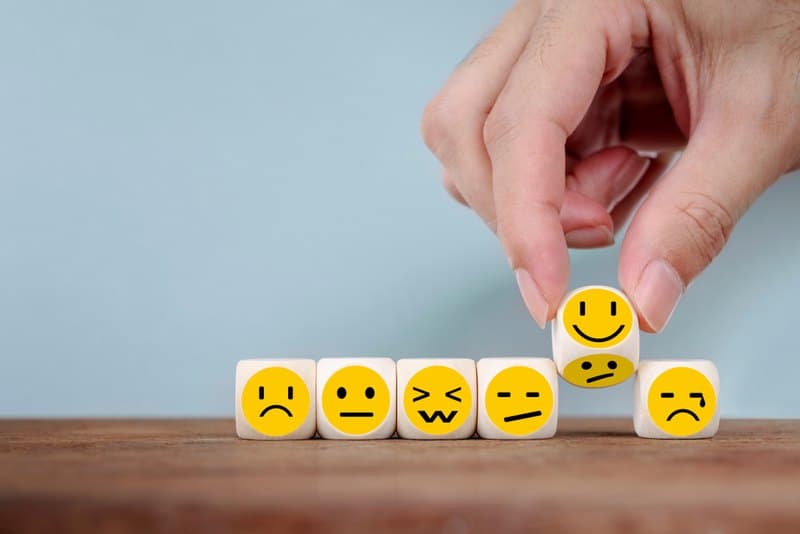Amaha / / / Treatment for Mood Disorders
ARTICLE | 5 MINS MINS READ
Treatment for Mood Disorders
Published on
10th Mar 2025

Mood disorders are a class of mental health conditions that can cause your emotional state (your “mood”) to be inconsistent. Mood disorders, also known as affective disorders, can be extremely debilitating as they can make it difficult for you to function in your daily lives.
If you think that you have a mood disorder, then you’re already one step close to getting better. Acknowledging that there is a problem is the first step towards finding a solution and feeling better. Mood disorders, although distressing, can be managed with the right care. There's a lot that can be done to help you feel better, and it starts with a better understanding of what you're going through.
Also read: What are the treatment options for Bipolar Disorder?
Types of mood disorders
There are several types of mood disorders, each with its own unique symptoms and characteristics. Some of the most common include:
Major Depressive Disorder (MDD) Major depressive disorder involves long and persistent feelings of extreme sadness.
Bipolar Disorder, sometimes called manic depression, involves cycles of extreme highs (mania) and lows (depression).
Dysthymia is a milder form of depression that can cause long periods of normal mood with an occasional period of low mood and persistent sadness.
Cyclothymic Disorder is characterised by milder forms of mania and depression that cycle over a period of time.
Seasonal affective disorder (SAD) is a form of depression that often occurs during the late fall to early spring when there are fewer hours of daylight in certain northern and southern latitudes.
Premenstrual dysphoric disorder is when a woman experiences mood changes and irritability during the premenstrual phase of her cycle, which go away with the onset of her period.
Disruptive mood dysregulation disorder is a type of chronic and persistent irritability in children that typically includes frequent temper outbursts that are not typical for their developmental age.
Depression related to medical illness is when a persistent depressed mood and a lack of pleasure in most or all activities are directly related to another medical condition.
Depression induced by substance use or medication is when depression symptoms develop during or after substance use or withdrawal, or after exposure to a medication.
Cognitive Behavioural Therapy for mood disorders
Cognitive Behavioural Therapy (CBT) is a type of therapy that is used to treat mood disorders such as depression and bipolar disorder. The therapy helps individuals address different aspects of their condition, such as:
Addressing symptoms of depression that occur during depressive episodes.
Working through feelings of guilt or negative thoughts and beliefs about manic episodes.
Addressing feelings of loss in regard to friendships or relationships.
By addressing these different aspects of mood disorders, CBT can help to reduce overall distress and decrease the frequency and intensity of depressive or manic episodes. Additionally, CBT helps individuals to develop an awareness of their mood, emotions, physical sensations, and other indicators of a manic episode, which can be helpful in early detection and management. By gaining a better understanding of their condition and developing effective coping strategies, individuals can work towards leading a more fulfilling and stable life.
Also read: What Is Psychosis? An Introduction to the Psychotic Mood Disorder
Dialectical Behavioural Therapy for mood disorders
DBT focuses on teaching clients new skills and strategies to regulate their emotions, manage stress, and improve relationships with others. The therapy emphasises the importance of balancing acceptance and change, which is why it is referred to as "dialectical." It helps individuals learn to accept their current reality and emotions, while also working towards changing problematic behaviours and thoughts.
DBT teaches a range of skills, including mindfulness, emotional regulation, distress tolerance, and interpersonal effectiveness. The therapy is usually delivered in a group format and can also include individual therapy sessions.
Research has shown that DBT can be highly effective in reducing symptoms of mood disorders, particularly for those with bipolar disorder. By providing practical skills to manage emotions and stress, DBT can help individuals lead a more fulfilling life and have better relationships with others.
Each of these therapies can be extremely effective when provided by a trained therapist. Your therapist will work with you to understand the unique causes of your mood disorder and develop a personalised treatment plan that works for you.
Also read: Are Mood Swings a Sign of Bipolar Disorder?
Psychiatry Support for Mood Disorders:
In addition to therapy, many people with mood disorders also benefit from psychiatric support. This may include medication, such as antidepressants, or other forms of medical treatment. A psychiatrist will be able to help you find out the root cause of your symptoms and enable you to find better coping skills to manage your symptoms better.
If you have depression or bipolar disorder, you may be prescribed an antidepressant. Two common types of antidepressants are selective serotonin reuptake inhibitors (SSRIs) and serotonin and norepinephrine reuptake inhibitors (SNRIs). These medications help to balance the levels of certain chemicals in the brain that can affect your mood. It may take a few weeks to start feeling the effects of these medications. It's important to take the medications exactly as prescribed by your doctor and to continue taking them even if you feel better.
Another type of medication called mood stabilisers can also be used to help regulate the mood swings associated with bipolar disorder or other mood disorders. These medications help to reduce abnormal brain activity. Some common mood stabilisers include lithium and anticonvulsant drugs.
If you have bipolar disorder and experience mania or mixed episodes, your doctor may prescribe an antipsychotic medication called a neuroleptic. Atypical antipsychotics, such as aripiprazole, can be used to treat mania or depression if other medications aren't working effectively.
Also read: What are the treatment options for Bipolar Disorder?
Many people find that a combination of therapy, lifestyle changes, and support from friends and family is key to managing their symptoms and improving their quality of life.
Mood disorders can be incredibly challenging to deal with, but there is help available. By seeking out therapy and psychiatric support, you're taking an important step towards managing your symptoms and feeling better. Remember, it's okay to reach out for help, and there are many resources available to you. Whether it's therapy, medication, or support from friends and family, there's something out there that can help you feel better. With time and effort, you can overcome your mood disorder and reclaim your life.



